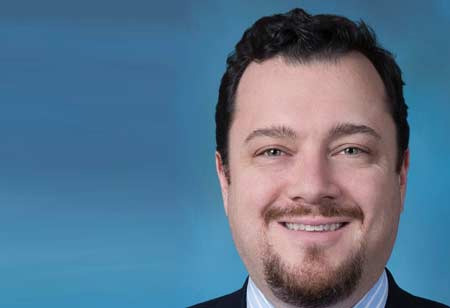Deborah Baden currently works as a Patient Safety Director, Risk Management at LifeBridge Health based in Baltimore, Maryland. She is a trained clinical nurse and has acute care experience throughout her whole career serving medical surgical department and pediatric department. Along with working in large medical center she has also worked in critical care nursing in the Airforce.
What are some of the Leading Challenges or Issues that Exist Within the Marketplace Today?
The healthcare profession has undergone drastic changes due to the Covid pandemic. These changes have brought about unprecedented difficulties in the healthcare business, such as problems with supplier chain, labor, and workplace retention. Moreover, managing an unknown disease like Covid has raised concerns about the standards and qualifications required in the profession. These events have turned the internal operations of healthcare upside down, creating an emergency crisis in medical care.
What are some of the Leading Strategies that Really Helped Combat These Issues?
The entire covid experience has enlightened us to the fact that innovation and research are essential for adaptation to evolving demands of resources. When we had a shortage of staff, supplies, and rooms for a rising number of patients, it required a significant amount of innovation on the side of every hospital in order to meet the healthcare demands of the community. Doing this we were successful in a variety of ways in terms of making innovative use of the resources that were already available. So, thinking creatively and beyond the box helped learn many new lessons and handle every situation well.
What Potential Changes in the Non-Emergency Medical Transportation Sector do you Think Might have Happened in a Covid Scenario?
For a smooth onboarding of a patient to a new environment with a new healthcare team requires certain patient information that needs to be clear, succinct, and relevant. The fact that we have access to wide variety of helpful electronic tools. Its important to remember that there is a limit to how far these tools can help us because they do not eliminate the need for human interaction or clarification. For example, what is the current condition of the patient and why the patient is brought there. Electronic system is great as it helps in collection of data and one can send it off from one party to another very easily. However it doesn’t really provide us context and doesn’t truly address the cultural or societal differences, inequalities, or disparities that may affect a patient’s ability to make an informed decision about their options for medical treatment. What your leadership strategy is in really leading your teams towards an efficient risk management?
" The entire covid experience has enlightened us to the fact that innovation and research are essential for adaptation to evolving demands of resources "
There are two leadership strategies that all individuals should employ for effective risk management. First, we must always keep the patient at the forefront of our minds, and second, we must equip the healthcare team with the resources necessary to analyze the situation's risk exposure.
As we are in the business of providing high-quality service with zero harm, we must consider the patient in his or her totality to determine if we have met his or her needs. This is the essence of risk management.
In order to make my team more agile, I believe it is essential that all team members are equally trained and have a propensity to share their talents. Thus that if there is a greater need for labor, any member of the team can easily assume leadership and adapt to new problems.
How do Envision the Future of the Industry Moving Forward?
Moving forward, protecting our organization’s assets, including our healthcare staff, is the most challenging aspect that we must consider. With constant issues such as cyber attacks and shortages in medical supplies, we need to have a strong backup plan in place to overcome these challenges.



